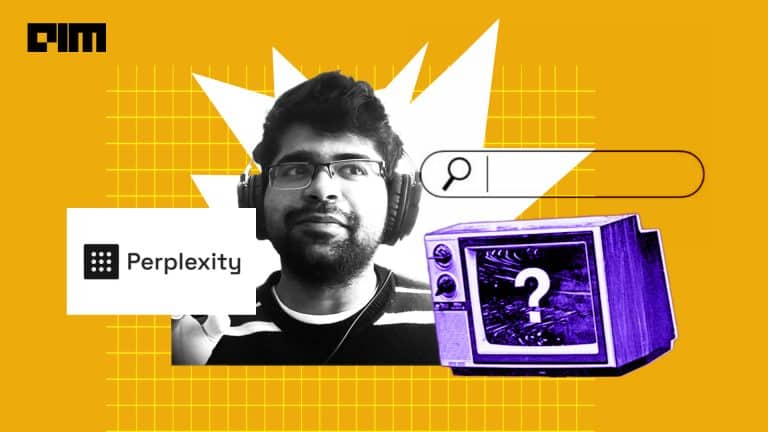Perplexity AI chief Aravind Srinivas is the perfect example of grit and determination. Refusing to give up despite the surrounding noise claiming that his product will soon be overshadowed by lurking competitors, he is on his path to build the best AI search engine.
The company has faced accusations ranging from using Google’s search engine behind the scenes to plagiarising content from major media outlets calling it a bullshit machine. Despite these challenges, Srinivas somehow manages to come out on top. Perplexity currently has 10 million monthly users and the number seems to be just growing.
The company recently announced the Perplexity Publisher Program and has partnered with major publishing houses, including TIME, Der Spiegel, Fortune, Entrepreneur, The Texas Tribune, and WordPress. The plan is to introduce advertising within their related questions feature.
“Brands can pay to ask specific follow-up questions in our answer engine interface and on Pages. When Perplexity earns revenue from an interaction where a publisher’s content is referenced, that publisher will also earn a share,” the company said in its blog post.
This could be a good alternative for smaller brands that are unable to rank well in Google Search since Google married Reddit and rolled out their “helpful” content update. “This is something Wikipedia could have done long ago instead of the donation model,” posted a user on X.
GenAI Search Would Be Nothing Without Journalists
“People don’t come to Perplexity to consume journalism; they come to Perplexity to consume facts,” said Dmitry Shevelenko, Perplexity’s chief business officer, indirectly taking the side of the journalists – a staggering contrast to Elon Musk’s views of making X the defacto platform for citizen journalism.
Perplexity AI is helping the media by offering media houses free access to Online LLM APIs and developer support. This allows each publisher to create their own custom answer engine on their website. Visitors can ask questions and receive answers citing only that publisher’s content.
“One of the key ingredients for our long-term success is that we need web publishers to keep creating great journalism that is loaded up with facts, because you can’t answer questions well if you don’t have accurate source material,” Shevelenko further added.
It seems true. In the long run, the key differentiator will likely be the media houses, as creating tools like Perplexity or SearchGPT is relatively straightforward. Recently, Dhravya Shah, an 18-year-old from India, developed an open-source alternative to SearchGPT.
Introducing OpenSearch GPT: An Open source AI search engine, but personalised for you.
— Dhravya Shah (@DhravyaShah) July 31, 2024
– learns about you as you ask more questions
– you can teach it who you are
– control what is known about you.
– super duper fast. pic.twitter.com/ZZoyD6Mf75
Another example is Bishal Saha, a dropout from Lovely Professional University who created Omniplex, an open-source alternative to Perplexity AI, over a single weekend. Speaking to AIM, he said that despite initial job rejections from Perplexity AI, it was his tenacity that led him to creating this alternative, which is now gaining traction.
Not just Perplexity, OpenAI has also formed numerous strategic media partnerships that include major media organisations such as Vox Media, Financial Times, The Atlantic, TIME, Le Monde, Prisa Media, Associated Press (AP), News Corp, BuzzFeed, Stack Overflow, and Shutterstock. These partnerships will allow OpenAI to integrate high-quality journalistic content into its AI models, providing users with accurate and up-to-date information while ensuring proper attribution to the original sources.
“Journalists’ content is rich in facts, verified knowledge, and that is the utility function it plays to an AI answer engine,” said Shevelenko.
SearchGPT Killer?
This move is timely given OpenAI’s recent announcement of SearchGPT, which appears to be a direct replica of Perplexity AI with few differentiators.
SearchGPT is likely to integrate just OpenAI’s models, like GPT-4o mini, with a search engine, likely Microsoft’s Bing as the company is closely working with Microsoft, despite the tech-giant listing OpenAI as a competitor.
In contrast, Perplexity AI allows users to choose from multiple LLMs, including GPT-4o, Claude 3, Llama 3.1 405B, and Sonar Large, which is based on the open-source LLaMa 3 model and trained in-house by Perplexity.
The current and the most touted major competitor to Perplexity AI is Google, not OpenAI. Google itself is struggling to perfect the balance between search and generative AI.
“I just got access to OpenAI’s new search tool SearchGPT. So far it’s quite good, however, I still think that Perplexity is slightly better in terms of performing complex AI searches,” posted a user on X.
I just got access to @OpenAI's new search tool SearchGPT.
— Harry Surden (@HarrySurden) July 30, 2024
So far it's quite good, however, I still think that Perplexity is slightly better in terms of performing complex AI searches.
However, it's early days for SearchGPT as it in testing, so I expect it to improve. pic.twitter.com/qtStqCqUSI
In a recent podcast with Lex Fridman, OpenAI chief, Sam Altman said, “The intersection of LLMs plus search, I don’t think anyone has cracked the code on yet. I would love to go do that. I think that would be cool.”
Further, he said that OpenAI does not want to build another Google Search. “I find that (Google Search) boring. I mean, if the question is if we can build a better search engine than Google or whatever, then sure, we should.”
“Google shows you like 10 blue links, like 13 ads, and then 10 blue links, and that’s like one way to find information. But the thing that’s exciting to me is not that we can go build a better copy of Google Search, but that maybe there’s just a much better way to help people find, act on, and synthesise information,” said Altman.
Earlier this year, Google introduced AI Overviews, but it hasn’t received a strong response. Unlike AI Overviews, which has difficulty with complex, multi-layered questions, Perplexity’s results effectively handle multiple queries at once, delivering accurate answers along with relevant links.
Moreover, Google’s AI Overviews recently also came under fire for suggesting users should use glue to stick cheese to their pizza, based on a comment from an 11-year-old Reddit user.
Search is a major domain for Google, with the tech giant generating $48.5 billion in revenue from this segment alone.
Currently, OpenAI’s search feature on GPT-4o is not as good as Perplexity AI’s, and the latter has somehow been able to maintain its responses grounded, while GPT-4o tends to hallucinate and confidently generate wrong answers.
“It looks similar to the early days of Perplexity. While it looks unpolished, very interested to see how they approach search and how they actually integrate this with ChatGPT,” said Elvis Saravia, co-founder Dair about OpenAI’s search feature.
He further added that other players like xAI with Grok and Meta with Meta AI, being the giants in the publishing space, will also make attempts at search as they are catching up fast.
However, one advantage OpenAI has is that it is constantly working on its voice features in LLMs, which will definitely make asking questions fun!






























